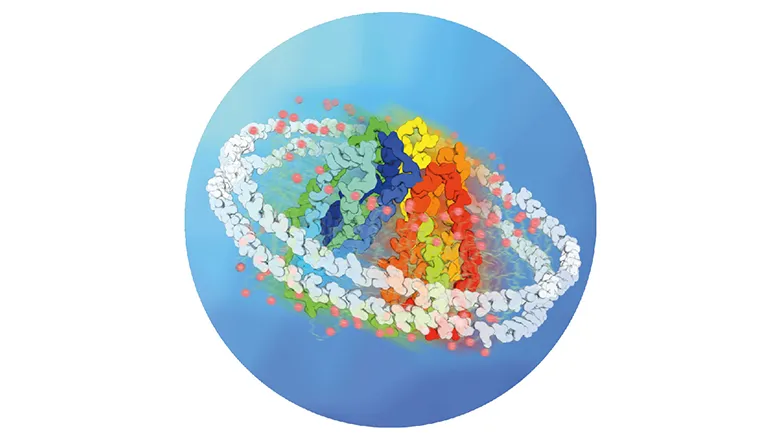“We’re thrilled to share our research with the wider community. Developing disruptive technologies holds the unique potential to enable new frontiers that will improve human health.”
22 October 2019
Research group in the Department of Chemistry develops methodology for unlocking the workings of membrane proteins
Published in Nature Protocols, the latest development from the Politis Research Lab outlines a method that overcomes obstacles faced by current strategies in research.

The group’s findings facilitate a refreshed view on how membrane proteins interact with their surrounding environment, such as uncovering the movements of membrane proteins within their native lipid environments.
The team’s method combines hydrogen deuterium exchange mass spectrometry, a method that probes protein dynamics in solution, with molecular-level simulations to examine how the lipids surrounding proteins have impact on the structure and dynamics of biological membranes. This subsequently enables observation of proteins that are difficult to study by conventional structural approaches, and allows for better understanding of their mechanism of action.
In doing so, the method provides a unique opportunity to explore a wide range of membrane proteins in their native environment with direct implications in human health and disease mechanisms, such as human membrane proteins. Further impact of this research has the potential to provide a new tool for assisting rational drug design.
On publication of the research, Dr Argyris Politis, Group Leader, commented;
